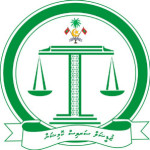The need to spend quality time with family, party political duties, and other outside commitments has prevented the Judicial Service Commission (JSC) from meeting to adopt its Standards of Procedure, now overdue by 10 months.
According to the JSC Act, the Standards of Procedure should have been adopted by January 26 this year.
The Standards of Procedure, or House Rules, are required to set the rules and regulations according to which the JSC should carry out its Constitutional responsibilities.
The JSC is an independent body constitutionally mandated to oversee the ethical standards and principles of the country’s judiciary.
Without the Standards of Procedure, the Commission is run on ad-hoc basis, often according to the discretion of the chairperson.
The day-long meeting in which members were to work on adoption of the Standards of Procedure was scheduled for Saturday.
It was also decided that the meeting would be held outside of Male’ from 9:00 in the morning till 8:00 pm.
JSC Chairperson, Supreme Court Justice Adam Mohamed, excused himself from the meeting citing court work and family commitments on Saturday.
Dr Afrasheem Ali, Deputy Chair and Dhivehi Rayyithunge Party (DRP), could not attend the meeting as his Saturdays, he told the JSC, are reserved for party political work.
Majlis Speaker Speaker Abdulla Shahid and Civil Service Commission President Fahmy would not be in the country on Saturday.
For Criminal Court Chief Judge Abdulla Didi, the reason for being unable to attend was the location of the meeting. He was unwilling to travel outside of Male’.
The venue of the meeting had not been finalised when the meeting was cancelled. JSC Interim Secretary General Moomina Umar told Minivan News that it would have been a place where members had access to full conference facilities, allowing them to focus on the urgent issue at hand fully.
Moomina also said that subsequent attempts by her to move the meeting to Male’ to facilitate objections had not received a positive response, forcing the meeting to be cancelled.
The ten member JSC needs six members present before a meeting can be held.
On 21 October, JSC Chairperson Justice Mohamed walked out of a meeting in which some members pushed to have adoption of the Standards of Procedure put on the agenda as a matter of urgency.
Judge Abdulla Didi, who excused himself from Saturday’s meeting because it was to be held outside of Male’, also walked out of the meeting with Justice Mohamed, making it impossible for members to put the Standards of Procedure on the agenda of its next meeting.
Justice Mohamed, speaking to media, blamed his decision to desert the meeting on the ‘vulgar behaviour’ of the President’s Member at the JSC, Aishath Velezinee.
Velezinee, along with Attorney Ali Sawad, JSC Lawyer Ahmed Rasheed and JSC Member of the General Public had objected to the continued and systematic manner in which the JSC Chair avoided making adoption of the SoP a matter of top priority.
The JSC released news of Justice Mohamed’s desertion of the meeting immediately, an act which he has claimed is against JSC Regulations as communications with the media cannot be done without prior majority consent of members.
The claim, however, is inaccurate.
A unanimous JSC decision dated 2 September this year (JSC-B1/10/200), authorised Media Officer Hassan Zaheen, Deputy Legal Officer Abdul Fatthah Abdul Ghafoor and Moomina Umar to speak to the media on its behalf.






hmmmmmmmmmmmm! hus bahanaa! alhe dhogeththa???
If it's something related to JSC Members' salaries, allowances, my God, all those showing BAHANAA for not attending the meeting would be the earliest attendees...
Kon bayeh theega thi attend nuvee....chee! Ikhlaas therikan neiy varu balaa! the country is crying for a proper Judicial system and these guys are playing fool of the country's citizen..Shame on u guys! dirty guys
Toothless organization is toothless.
I guess too many law professionals and political interest on the same table makes it more dependence toward the interest of their own.What is so independent about this commission? most members are either related to political party or assigned because of the position. Another question is to whom is the JSC accountable to and when? So who is going to guard these independent commission (who will guard the guardians)?. (to make JSC Independence it must first be independent from the parliament members holding two position at the same time that may cause conflict of interest). I think may be instead to civil service commission representative, corruption com representative should be in the board to reduce these problem. I call parliament (this is highly impossible given members in JSC) , corruption commission and Audit office to oversee these problems and be more vigilant in such issues. Who is responsible for Public governance of these commissions?